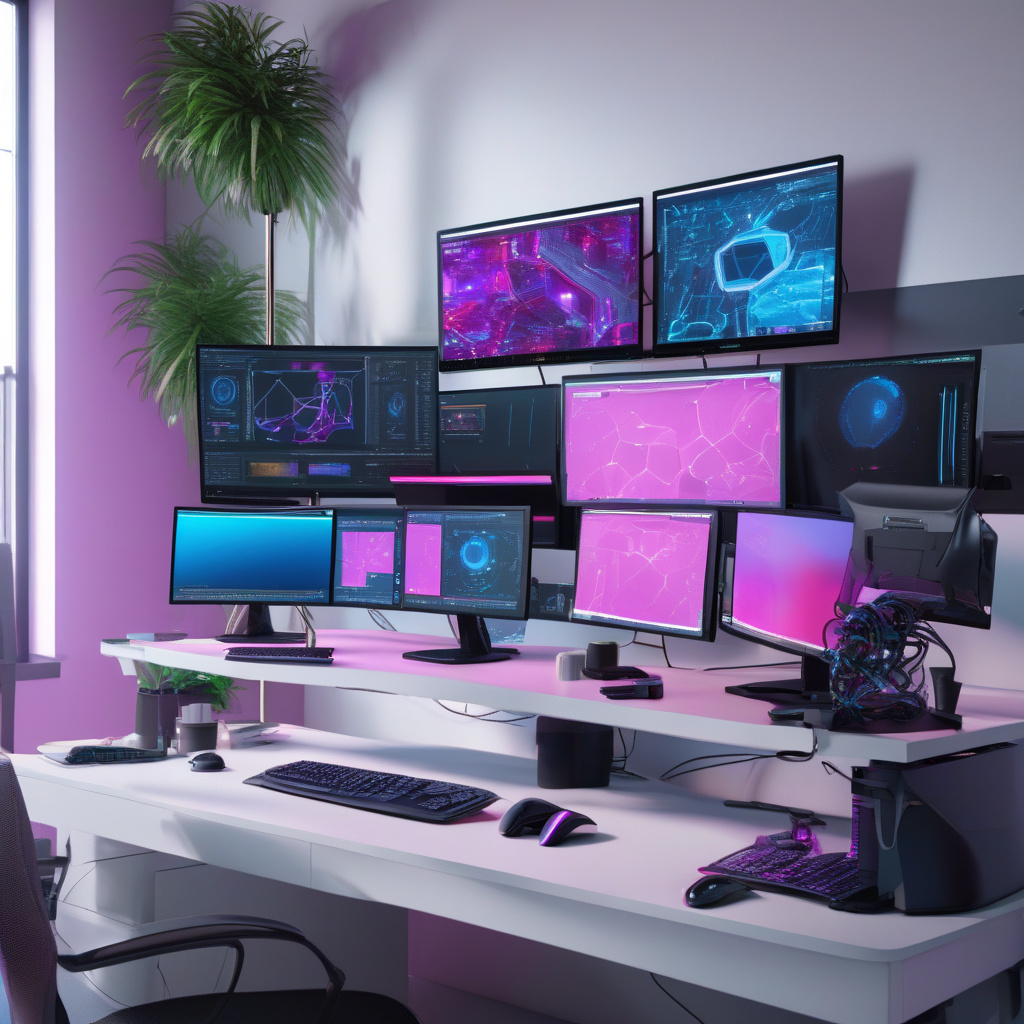The Rise of AI PCs: Transforming the Future of Computing
In a world where technological advancements occur at lightning speed, the emergence of Artificial Intelligence (AI) in personal computers is reshaping the very core of computing. According to a recent study by Gartner Research, AI embedded in both hardware components and software stacks is projected to soar to 77.8 million units by 2025, constituting a significant 31% of the global PC market.
Despite initial challenges that have slightly tempered growth forecasts, the adoption of AI PCs is on an upward trajectory, with expectations to surpass 50% of sales by 2026. This surge is primarily attributed to the escalating costs and security concerns associated with cloud-based AI deployments, prompting more businesses to pivot towards integrating AI capabilities directly into their PCs.
The impending dominance of AI PCs is further reinforced by a study from IDC, indicating a remarkable shift from a mere 5% in 2023 to a staggering 94% in 2028 of AI PC utilization. This trend underscores the growing significance of AI at the edge, signifying a pivotal moment in the evolution of computing technology.
One of the critical decisions looming for consumers and businesses alike is the selection of the appropriate AI PC processor. Gartner suggests that while Arm-based laptops are gaining ground in the consumer sector due to enhanced AI app compatibility, x86 on Windows remains the dominant force in the business realm, commanding a substantial 71% share of AI laptops in 2025.
To unlock the full potential of this burgeoning market, PC vendors are urged to transcend conventional hardware limitations and delve into the realm of software-defined, user-centric AI PCs tailored to specific roles and use cases. By enabling users to customize their devices with preferred apps and features, vendors can forge stronger connections with customers, fostering enduring brand loyalty and continuous improvement.
The allure of AI PCs is not solely confined to business realms; it extends to the realm of personal computing as well. A study by Forrester Research unveils a dual sentiment among US online adults, with 55% valuing the privacy offered by AI PCs for personal interactions, while 50% remain skeptical about the necessity of AI PCs, and 61% feel they do not engage with AI enough to warrant such an investment.
Moreover, over 60% of US online adults are inclined to await a decrease in the price of AI PCs before contemplating a purchase, underscoring the significance of pricing strategies in driving consumer adoption. This sentiment reveals a potential barrier to widespread AI PC adoption, necessitating strategic pricing interventions to entice a broader consumer base.
The essence of AI PCs lies in their capacity to revolutionize the computing experience by harnessing the power of local AI processing, thereby enhancing data privacy and security while delivering personalized user experiences. Dedicated processors such as NPUs, GPUs, and CPUs are instrumental in accelerating AI tasks like image recognition and language processing, paving the way for unprecedented advancements in machine learning and AI-driven applications.
As we hurtle towards the end of 2026, the landscape of software development is poised for a seismic shift, with a projected 40% of software vendors redirecting their focus towards AI tailored for PCs, up from a mere 2% in 2024 as per Gartner’s insights. This transition heralds a new era of AI customization, enabling organizations to leverage small language models (SLMs) to drive fast, efficient, and secure AI applications locally, reducing reliance on cloud infrastructure and safeguarding data privacy.
In conclusion, AI PCs are not merely a technological novelty but a gateway to heightened productivity and personalized computing experiences. As Steve Long, senior vice president of Lenovo’s Intelligent Devices Group, aptly puts it, AI PCs empower users by automating mundane tasks, fortifying security measures, and offering a bespoke computing environment tailored to individual preferences. In essence, AI PCs represent a pivotal juncture in the evolution of computing technology, promising a future where innovation and personalization converge to redefine the boundaries of what is possible.

